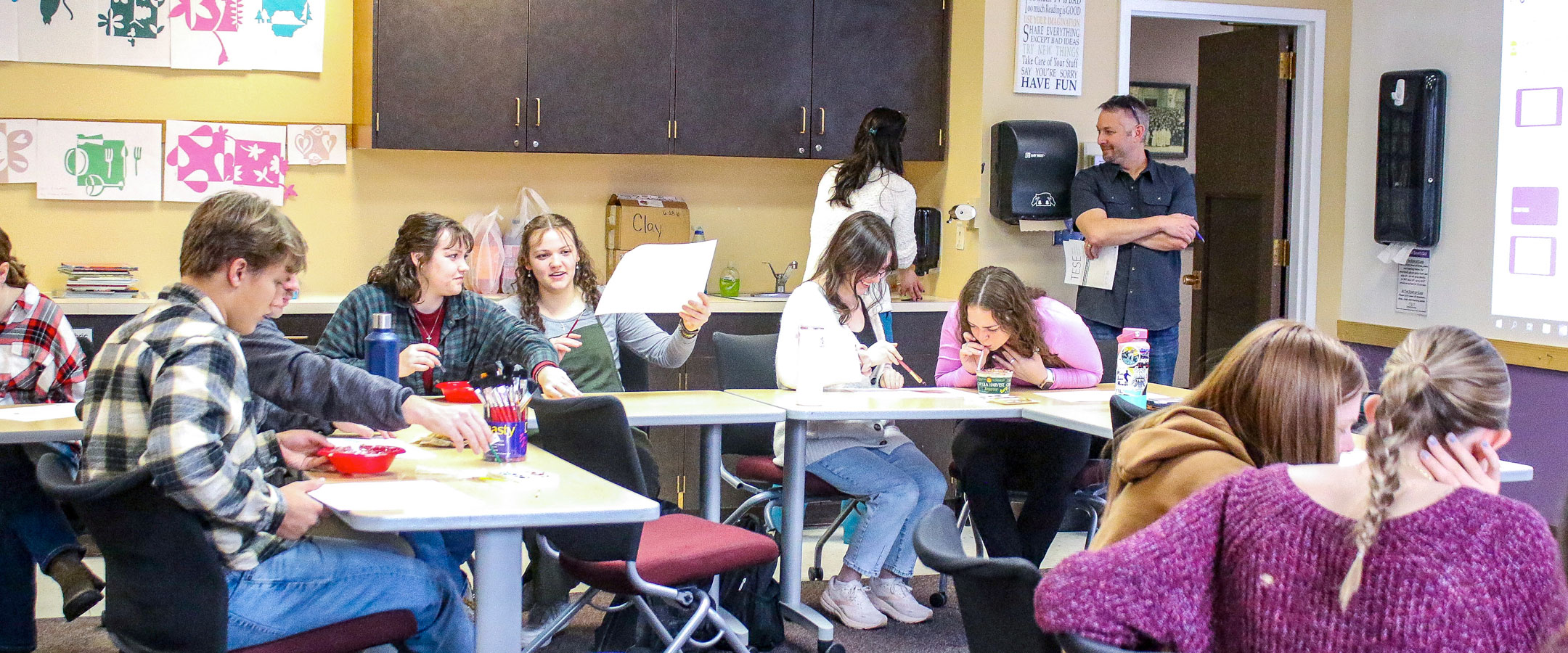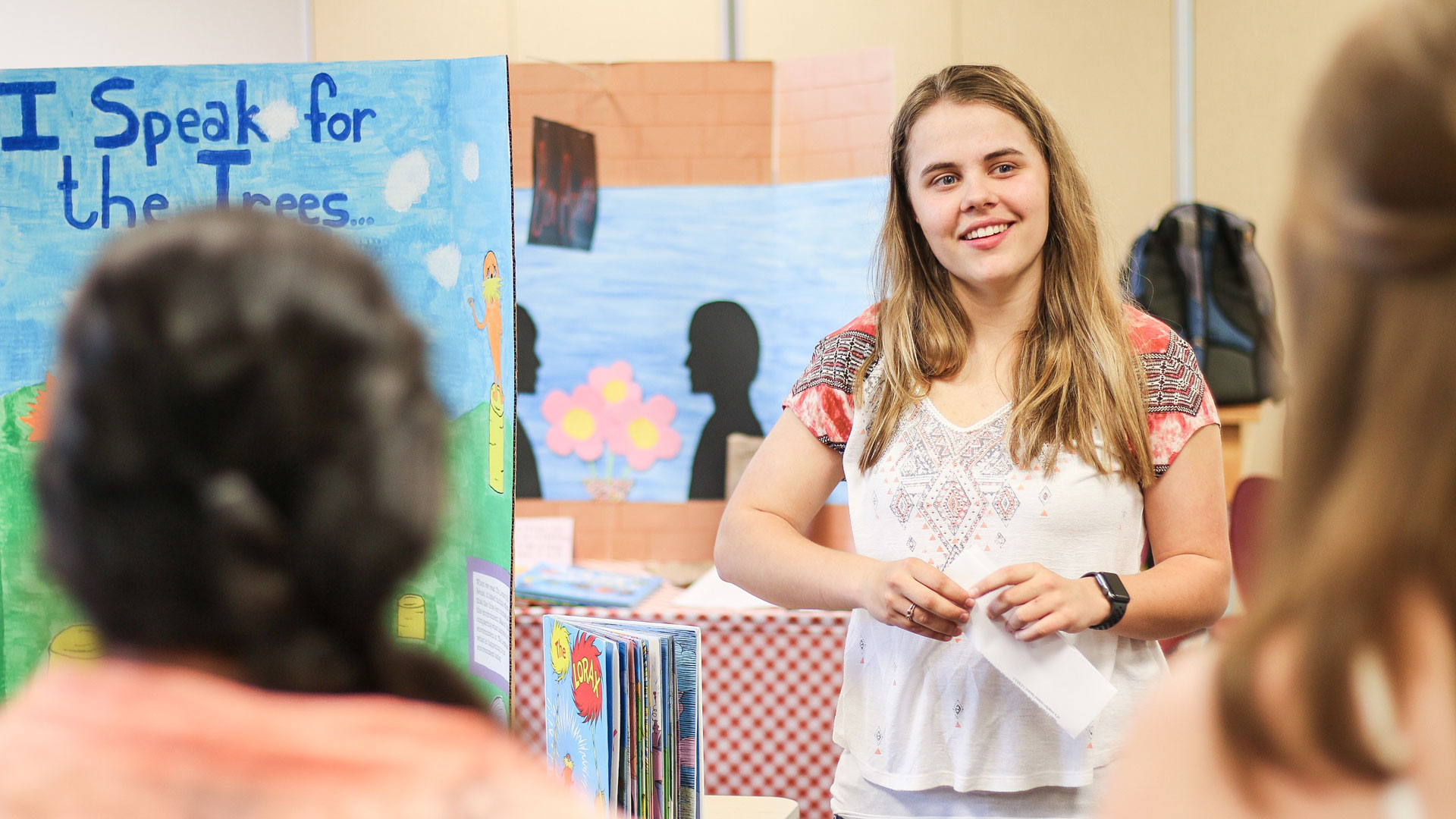Our mission is to prepare students for lifelong learning, developing future educators’ intellect, imagination, self-confidence, and motivation, while preparing them for the teaching profession. As an elementary education major, you will learn to investigate, reflect, analyze, and judge reality and truth through inquiry and discussion. You’ll develop values about teaching, society, health behaviors, moral issues, education, and political influences. We ask our students to think boldly and live Carroll College’s mission by participating in community service and by interacting with children and adults from diverse cultural, religious, economic, and intellectual backgrounds.

Teacher Education Program
Details

About the Program
Teacher education advances this mission as it works within Carroll College’s Teacher Education Conceptual Framework. That framework is built upon a liberal arts education, structured by traditional educational philosophies, and embraced by an atmosphere of dignity, which values justice for all persons.
The goal of Carroll College’s Teacher Education Program is to assist students in developing teaching competencies in their chosen fields and to help them become educational leaders capable of responding to their students’ individual needs.

Experiential Learning
Beginning your freshman year, you will log over 120 hours in K-12 classrooms before you complete your student teaching semester. More experience means more confidence when you graduate and enter your first teaching position.
Hours
Well-Rounded Teachers for Tomorrow
Our curriculum is designed to develop the whole student. Through courses and internships, students get many opportunities to experience the classroom and develop skills that will result in a job as a skilled professional.
Beyond being highly prepared for the elementary-age classroom in both private and public school settings, opportunities are available in the fields of writing, editing, and administration. Carroll will help you develop strong teaching skills that would aid in any profession for which education and training are required.
Teacher education graduates will demonstrate competence in the Montana Office of Public Instruction Teaching Standards and the Framework for Teaching, a research-based set of components of instruction, aligned to the Interstate New Teacher Assessment and Support Consortium (INTASC) standards.
Frequently Asked Questions
The deadline for application to the Teacher Education Program is on April 1 of your sophomore year. You must meet the following requirements.
- Core Academic Skills for Educators Test minimum scores of 156 in reading, 162 in writing, and 150 in mathematics
-or- SAT minimum Section scores of 560 in Reading and Writing and 550 in Math
-or- ACT minimum Composite scores of 22 in Reading, 7 in Writing, and 19 in Math - Grade of “C-” or better in CO 101
- Grade of “C-” or better in CORE 110
- A minimum of 2.75 cumulative grade point average
- An interview that has met program standards
In addition, students will be assessed based on the following:
- Four faculty recommendations (You must include at least two education faculty.)
- Background check
- Previous K-12 field experiences.
The deadline for application to student teaching is March 15 of your junior year or the year prior to student teaching.
- Positive field experience evaluations;
- Online application form;
- 3.0 GPA in major and minor program requirements, professional education requirements, and other program requirements.
- Passing scores on the required Praxis Subject Knowledge Test.
An Education degree opens doors to various rewarding careers in teaching and beyond. Carroll's Education degrees lead to licensure in the state of Montana (Elementary K-8, Special Education P-12, and Secondary 5-12). Graduates typically become school teachers and many pursue further education to specialize in areas like special education or educational leadership.
The Elementary Education bachelor’s degree can be completed in four years and we’ve even laid out a schedule to help you with which classes you need to take—and when: Find the Elementary Education 4-Year Plan here.
Yes! The Carroll College Teacher Education Program is designed to lead to licensure in Montana. Each state has guidelines to reciprocate your Montana teaching license to the state in which you intend to teach.
We encourage you to contact the department with any other questions you have about the program!
Featured Courses
View all requirementsArts Integration in Elementary School
This course is designed to equip preservice teachers with knowledge, skills, and appreciation for using the arts (visual, media, drama/theater, music, and dance) as an effective methodology for learning in an integrated curriculum.
Student Teaching
For qualified students pursing professional teacher licensing in a major, or a major and minor endorsement, area of study. A full day, 15-week directed teaching program in the student's major and minor areas.


Educating Educators
Mar 22, 2024

